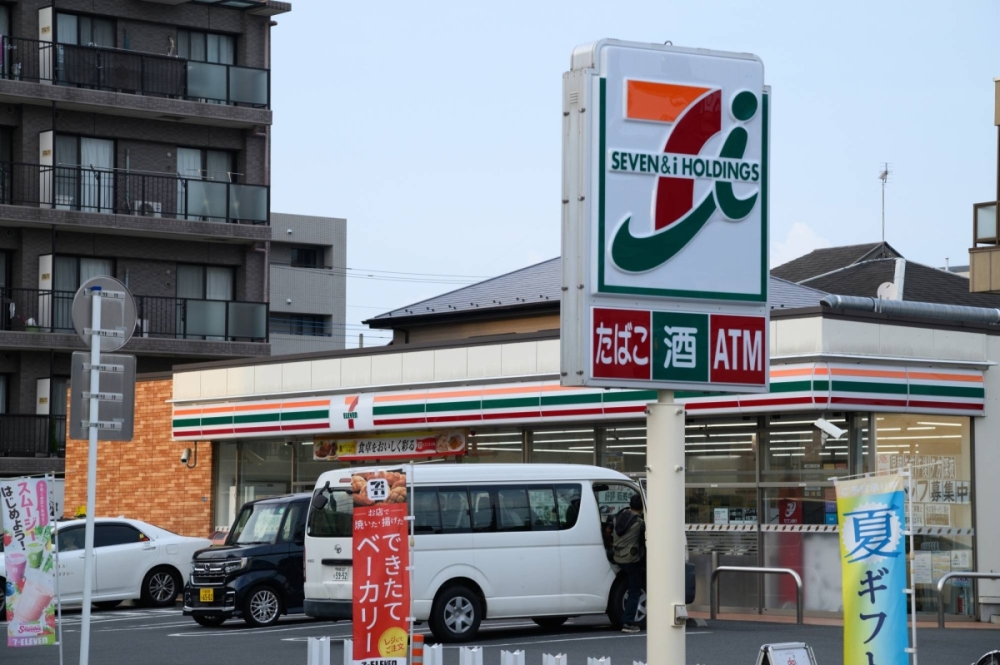7-Eleven deserves more than shareholder supremacy

Just weeks from the first report of Alimentation Couche-Tard’s bid to acquire Japan’s Seven & I Holdings, the battle lines for public opinion are being drawn.
Reports that the target is seeking Japanese government protection from the bid, under the auspices of the country’s Foreign Exchange and Foreign Trade Act, have had some asking if this is "Japan Inc.” of yore. The talk already is that any rejection of the Canadian firm’s bid would be a return to the sakoku era of closed-borders opposition to foreign involvement — and, conversely, that acceptance of the takeover attempt would underline Japan’s recent transformation.
Let’s not proceed to the checkout with that idea just yet. For one thing, Couche-Tard has yet to lay out anything about this deal, from a per-share offer to a demonstration of how it intends to manage 7-Eleven better than its current custodians. And though the suggestion that the chain is a critical piece of national infrastructure like nuclear plants might be opportunistic, 7-Eleven has more value than simply its worth to shareholders.
7-Eleven has become a vital local hub in Japanese communities, particularly in rural areas where the smaller independent stores of yesteryear can no longer afford to operate. The chain’s nationwide reach and economy of scale make its tasty, nutritious food options available to otherwise isolated elderly people. When the conbini, as the stores are colloquially known, reopened weeks after the Noto earthquake that hit on New Year’s Day last year, celebrations erupted among local communities.
Much focus has been on the potential benefits from Couche-Tard’s history of boosting profit margins. Could the new owner wring more out of the franchise? Almost certainly. Does your average conbini need 3,000 items at every store, some 70% of them changed through the course of a year? Probably not. That’s precisely why 7-Eleven isn’t only a national treasure in Japan but also so beloved by foreigners who travel here. Couche-Tard might know how to run a business more efficiently. But can it manage this one better?
While it’s easy to go overboard on the idea of Japanese capitalism, it’s still true that ideas such as sampo-yoshi, a phrase used by feudal merchants for a deal benefiting the buyer, the seller and society overall, still help frame thinking. Eiichi Shibusawa, who constructed much of Japan’s modern capitalist thinking, believed that private business not only had a duty to contribute to public good, but that contribution itself helped create a legacy that made everyone better off.
Stakeholder capitalism, in which shareholders are the primary focus, was until recently gaining traction overseas. Of late, the idea seems to be under attack amid culture-war battles over topics such as diversity, equity and inclusion. In Japan, where these skirmishes matter less, managers will still consider not only shareholders but suppliers, customers and workers in their thinking, compared to cutthroat U.S. firms at least.
Reasonable caution about this bid doesn’t have to represent a return to an inefficient past. After decades during which investors were little more than an afterthought, Japan can afford to give them more input. But it shouldn’t slide down the path toward shareholder supremacy.
To see where that slope might lead, consider another recent story that, unlike 7-Eleven, has generated an outcry in Japan — the plans by chemicals maker DIC Corp. to close a beloved art museum.
As recommended by a panel of outside directors, the company plans to shutter the Kawamura Memorial DIC Museum of Art, located about an hour outside of Tokyo and home to works by Monet and Renoir. "If one regards the museum simply as an owned asset, it is clear that it is not necessarily being used effectively, particularly from the perspective of capital efficiency,” DIC said in a statement.
Capital efficiency is all well and good, and DIC, the loss-making target of activist investor Oasis Management, could use more of it. But when discussing art, is there a colder phrase imaginable than the "Corporate Value Improvement Committee” that has arisen from this recommendation? The museum might provide little value to shareholders (though they do get free tickets), but what of the greater social value to local communities and visitors — to say nothing of the world, which gets to enjoy the works instead of having them locked in a safe. Capital efficiency’s benefit to investors seems little more than a rounding error by comparison.
Where does this thinking end? Philanthropy, community outreach and other acts of social good have a value that can’t always be measured in terms of balance-sheet line items. It’s the reason that Japan’s rail firms still run lines that have bled money for years. Under a prism of pure shareholder primacy, they should be shut down. Instead, they — and the local communities they support — persist.
From the contentious takeover of beloved British chocolate brand Cadbury by Kraft Foods, Boeing’s merger with McDonnell Douglas and even the purchase of Star Wars by Walt Disney, it’s not hard to find examples of where deals have ultimately worsened beloved institutions. Business managers tasked with the stewardship of Japan’s often-undervalued brands should keep this in mind while weighing the potential benefits of deals like that for Seven & i.
culled from Japan Times

